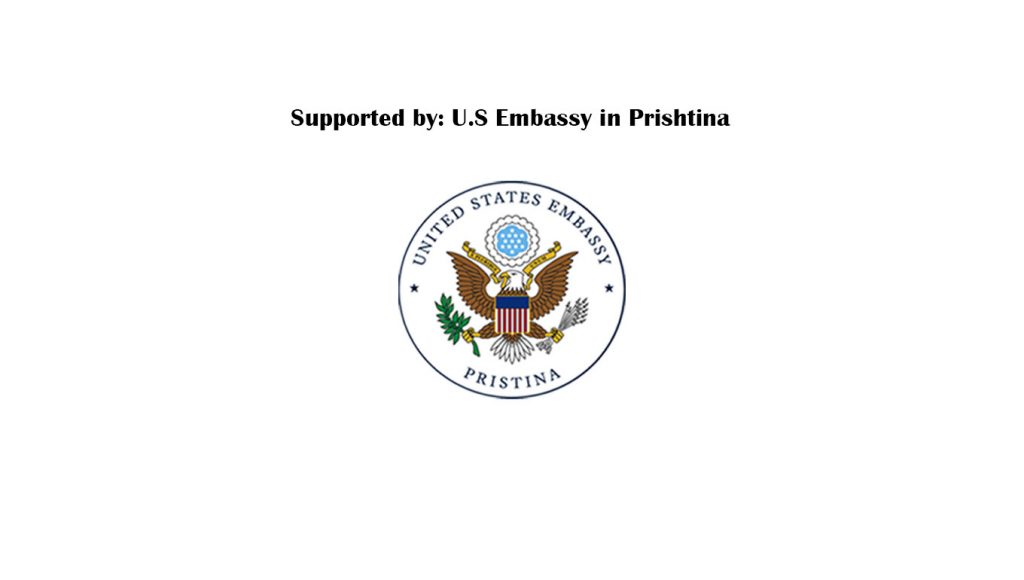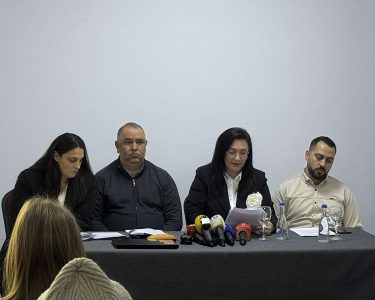Many members of the Roma, Ashkali and Egyptian communities are being violated, excluded and bullied. This happens in some cases also due to the misinformation of the labeling that is being done by the media.
Organizations that protect the rights of non-majority communities say that children and women are the most vulnerable groups that are being attacked by fake news. They also mention cases in which they were misinformed, and community members were attacked or excluded from society.
Senad Ibishi from the Voice of the Roma, Ashkali and Egyptians (VoRAE), says that misinformation is affecting the lives of the three communities.
“Unfortunately, we have had such cases of misinformation in Kosovo, and the worst case is that of a Roma woman in the municipality of Ferizaj, where, as a result of the misinformation of a portal,
sharing incorrect information that the same person is kidnapping children and abusing and manipulating with this information, the same person was attacked three times in a day, was beaten by the youth of the majority community. This is a problem where we as a state would have to function differently based on legislation, preventing and verifying the source of information. While the other side that is attacked and mismanaged by the media, unfortunately in Kosovo, is the aspect of not knowing the history and culture of the Roma, Ashkali and Egyptian communities in Kosovo”, he declares.
He adds that pejorative language continues to be used against the three communities.
“The use of pejorative words by different media violates the integrity and directly discriminates against the Roma, Ashkali and Egyptian communities in Kosovo. And this is due to the ignorance of the communities in general, but also different problems. A factor that has happened for years through different media is that every time negative topics are talked about, when we talk about problems of big cities, the cameras through the media capture the worst parts of the life of the Roma, Ashkali and Egyptian communities. And this makes discrimination by the majority even deeper,” said Ibishi.
Even Fatlum Kryeziu from the “Roma Versitas Kosovo” organization says that misinformation has also led to cases of violence.
“The news has often happened and followed with violence, as well as derivatives of other problems, which have directly led to racism, or to prejudices or have strengthened prejudices in the segregation and stigmatization of entire communities or the most sensitive groups, such as children and women… Children and women are the most vulnerable groups and have a little more difficulty experiencing the news that is happening. There was also violence, or they were excluded from social groups”, says Kryeziu.
Also, he mentions how a report has influenced the further stigmatization of the Roma, Ashkali and Egyptian communities.
“A statement was given which states that for arranged marriages in the community, a very large figure (of money) is still required. It has also influenced the stigmatization of the community and has influenced it to be ridiculed. Unfortunately, we are also a society that creates black humor in comments, statuses on Facebook, which in this case stagnates the community from the processes that we are trying to raise the position of communities in society”, he said.
Discrimination is largely being promoted on social networks, says activist Urma Menekshe.
“Because of the wrong information, they are not able to carry out their daily life properly and this is also affecting the education system and other aspects, such as development, as healthy individuals.
We have noticed the reports in different ways on social networks, the various comments, which encourage a lot of discrimination for the members of the Roma, Ashkali and Egyptian communities, and we as a community have reacted to this,” she concludes.
The project “Media education against disinformation for non-majority communities in Kosovo” is supported by the United States Embassy in Prishtina.









